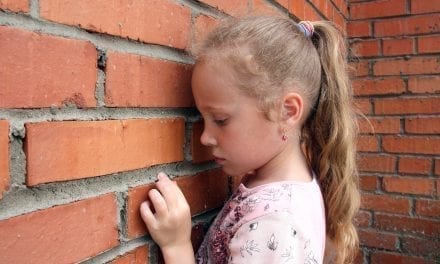.
Video Transcription
Greetings! This is Dr. Randy Cale. I want to welcome you to a series of videos that I’m creating on Nurturing The Habits of Success and I’m creating these really for the Back to School season to give you a sense if it’s the first time for your kindergartener, first grader and they’re just starting into that academic realm. What are the kinds of core concepts that you need to be thinking about if you want to build success not just success academically but success in terms of thriving in all areas for your kids? For others this you may be dealing with a child that’s in fourth grade or sixth grade or tenth grade and so this is about maybe things didn’t go so well and you’d like to be able to turn it around and build a more successful school year for your kids. Either way, it doesn’t matter. These concepts apply across the board from kindergarten to 12th grade because when you can nurture these concepts when you can build these core ideas and make it bring them alive in your home, it’s almost a guarantee that your kids will stay on a healthy track.
So, for today’s first video we’re going to talk about the value of routines and the importance of valuing routines. I know that you often hear the sort of phrase that suggests that kids thrive on structure and often I have parents come into my office and they understand this. They say oh yeah I’ve heard that before I know kids need structure but and then I hear a list of the reasons why they’re not able to maintain a consistent routine or consistent structure in theirs. I understand today’s world is kind of hectic we have lots of commitments lots of different directions that we have to be we have to take care of business. We have extracurricular activities and so forth.
But here’s the bottom line: it’s an important bottom line for you to begin to embrace if you want your kids to thrive over the long term the more that they live a life that’s kind of hectic going from here to there and there’s no consistency in that routine and it’s as if mom and dad are kind of making it up as we go along so to speak that sort of impulsivity and lack of predictability does two things.
First, it tends to increase anxiety for a lot of kids it heightens their sense of uncertain internal uncertainty, and thus over time their anxiety rises now that’s not good for kids it’s not good for adults and the bottom line is the more that we can have a predictable consistent routine the more that anxiety comes down.
The second point is equally as important. However, and that is that consistency tends to produce greater success because not just because there’s less anxiety but because in a consistent routine there’s a more planful thoughtful way in which the important tasks of the day are being taken care of. The important task of the day primarily for a young student is to take care of their academic work and to also learn to become responsible around the house at least I that’s a value that I hold very very it’s a very important value that often tends to get overlooked and also enjoying life, enjoying the process of learning, enjoying the process of becoming an active participant in the family, enjoying their friends enjoying their, sports just plain oh enjoying life structure helps with all of that.
So we see then that routine and structure is the number one concept that you need to be thinking about as the school year rolls around now whether it’s already begun for you whether it’s getting ready to begin this is the number one thing that you need to be thinking about you need to think about what are the kinds of routines that are going to make life very predictable and predictable in a way where those activities like showers, brushing your teeth, bedtime routines, homework routines, even eating, and taking care of responsibilities around the house.
All that is fairly predetermined as to when it’s going to happen in what order it’s going to happen the more that you think in those terms so that when your child wakes up in the morning they don’t have to begin to think about it well what am I going to do first, so I wander downstairs and turn on the TV while mom fixes breakfast, do I play with the dog while mom’s taking a shower, am I going to be able to play a game with dad while he’s fixing breakfast and then I’m going to go up and take a bath and then all the while you’re encouraging them to get dressed, get dressed get ready for school, make your bed, make sure your bag’s here.
See the more that we can eliminate that sort of moment-to-moment day-to-day decision-making around those routine activities so that they just move through from one to the next without giving a lot of thought energy then this amazing thing happens.
First, life gets simpler there’s not so much nagging and reminding and prodding and pushing and that exhaustion isn’t there.
Secondly, the process just happens more efficiently and kids get through it easily.
Thirdly, and this is a critical piece to remember because the research is reflecting how important this is and that is that when we use up let’s take the opposite of this so let’s take a bad routine and an unpredictable routine where you’re constantly nagging, prodding, pushing, the kids they’re negotiating, arguing, fighting, whining crying complaining, you know the routine so in, in that kind of a situation see where all this energy is being used around these little decisions what happens is that children end up having fewer resources available for the big decisions for learning the new math assignment for mastering that history project.
By the way, the same thing is true for adults to thrive with structure and consistency just as much as children. But in this video, I’m talking about how do you do this so that your children can thrive later on I’m going to talk about how important it is to model this kind of behavior yourself. But for today’s lesson, the main thing that I want you to walk away with is that there is nothing more important at this stage of the game than beginning to think about how do I set up daily routines that become predictable for the children so that we do not have to think about these things that have to be done every day when they’re going to happen what’s going to happen next and so that doesn’t end up having to argue and negotiate and pride push and scream yell and get frustrated just trying to get those things done.
So the bottom line here is if you want your kids to thrive this year, next year, and through the years in the future, the first thing to think about is how do I establish these routines in a daily simple straightforward fashion so I don’t have to keep reminding them. So it becomes integrated so that they become
so that your children learn to own that routine and just move through it without a lot of thought and energy this will serve them more than anything else that you can do for them as your gift to their future success and to their thriving down the line.
This is Dr. Cale, this is the first segment of this video series and nurturing the habits of success. Tomorrow, I’m going to bring you another secret stay tuned I look forward to talking with you then.














